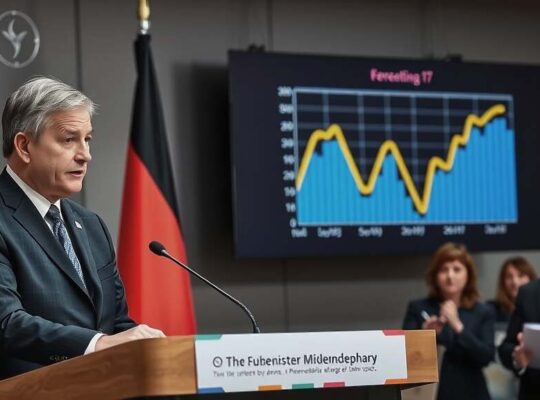The German government is reportedly accelerating deportation procedures to Syria, a shift drawing both cautious endorsement and fierce condemnation across the political spectrum. According to reports in “Welt am Sonntag” Interior Minister Alexander Dobrindt (CSU) intends to significantly broaden the criteria for deportation beyond known offenders and those posing security risks.
Until the end of September, decisions on Syrian asylum applications were largely suspended. Now, the Federal Office for Migration and Refugees (BAMF) is again processing applications from single, working-age men, prioritizing those of Sunni Muslim faith. While exceptions remain in place for members of ethnic and religious minorities, the renewed focus on Sunni men raises concerns about potential bias and unequal treatment. Furthermore, BAMF has restarted processing cases involving individuals who previously received protection but have since purportedly returned to Syria, again prioritizing young men.
Asylrecht expert Daniel Thyhm characterizes the ministry’s prioritization as “understandable” citing evidence suggesting a higher likelihood of application rejection for single, Sunni men based on current conditions in Syria. Internal Affairs spokesperson for the ruling coalition, Alexander Throm, argued that the end of the civil war and the Assad regime’s consolidation of power eliminate grounds for asylum for Sunni Arabs, asserting that the current situation allows for substantive review of applications. Sonja Eichwede, the SPD’s deputy parliamentary group leader, echoed a similar sentiment regarding the possibility of application review, while acknowledging that decisions on family-based asylum remain largely unaffected by the on-the-ground situation.
However, opposition parties vigorously contest this assessment. Filiz Polat, parliamentary manager for the Green party, insists that Syria remains neither safe nor stable, pointing to widespread infrastructural damage, inadequate medical care and a severe shortage of clean drinking water. Clara Bünger, the Left party’s interior policy expert, labelled deportations to such conditions as incompatible with human rights principles. The far-right AfD echoed a more hawkish view, asserting that asylum is temporary and deportations are inevitable.
Bayerns Interior Minister Joachim Herrmann (CSU), speaking for the union-led interior ministers, welcomed Dobrindt’s initiative, emphasizing the need for continued humanitarian aid while also advocating for the removal of criminal offenders and restrictions on new arrivals. He specifically cited the deportation of young, working-age Syrian men who have failed to integrate as a necessary measure. The escalating policy shift highlights a deepening debate about Germany’s asylum obligations and the evolving security landscape in Syria, raising critical questions about procedural fairness and potential human rights implications.












